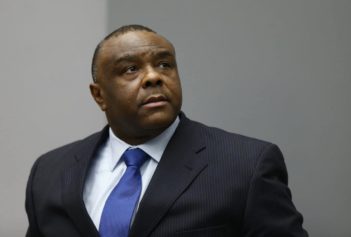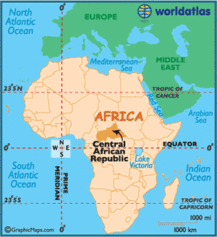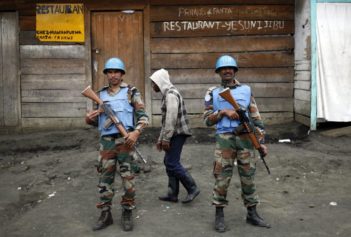Central African Republic’s new President Michel Djotodia, who seized power last week, said he would review resource deals signed by the previous government and promised to step down at elections in 2016.
“I will ask the relevant ministers to see whether things were done badly, to try to sort them out,” Djotodia said, when asked about resource licences awarded to Chinese and South African firms.
Djotodia, a former civil servant turned rebel leader, said on Friday he would seek aid from former colonial power France and the United States to retrain the ill-disciplined army, which was easily overrun by fighters from his Seleka rebel coalition.
Paris and Washington have called for the rebels to adhere to a power-sharing deal signed in the Gabonese capital Libreville in January, which mapped out a transition to elections in 2016 in which then-President Francois Bozize was banned from running.
“We are going to act according to the spirit of the Libreville agreements,” Djotodia said his first news conference since seizing power. “Anyone currently in power supporting our takeover will not contest the next presidential elections, myself included.”
The rebel takeover has been strongly condemned internationally.
The African Union suspended Central African Republic’s membership and imposed sanctions on Seleka leaders, including Djotodia.
A Pentagon spokesman said the U.S. Defense Department had no contact with the rebels and it condemned their illegal seizure of power.
“We call on all involved parties to adhere to the Libreville Agreement and work to resolve this conflict,” Major Rob Firman said.
In a bid to tap the country’s under-exploited mineral wealth, Bozize had awarded China National Petroleum Corp rights to explore for oil at Boromata, in the country’s northeast near the border with Chad.
South Africa’s DIG oil is also prospecting in the southeast of the country, near the town of Carnot.
Bozize, who fled to Cameroon immediately after the coup, has requested asylum in the West African nation of Benin, said the foreign minister of Benin, Nassirou Bako.
“He has not yet arrived in Cotonou and everything indicates he is still in Cameroon,” Bako said late on Thursday.
Although Central African Republic has deposits of gold, diamonds, oil and uranium, these remain largely untapped, and the coup-prone nation is one of the poorest in the world.
Read more: aljazeera.com


